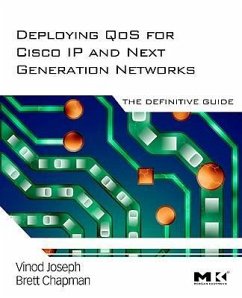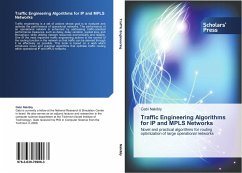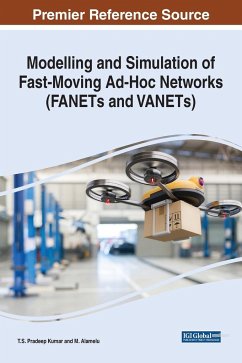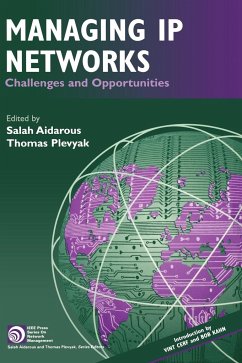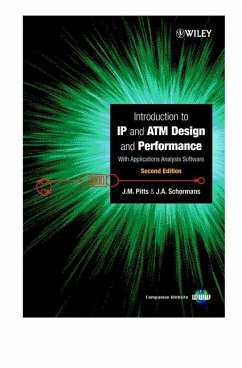
Moving on to Next Generation IP Networks
Performance Evaluation of Efficient Resource Management Concepts
Versandkostenfrei!
Versandfertig in 6-10 Tagen
52,99 €
inkl. MwSt.

PAYBACK Punkte
26 °P sammeln!
Next generation networks (NGNs) must integrate the services of current circuit-switched telephone networks and packet-switched data networks. This convergence towards a unified communication infrastructure necessitates from the high capital and operational expenditures due to the coexistence of separate networks for voice and data. In the end, NGNs must offer the same services as these legacy networks and, therefore, they must provide a low-cost packet-switched solution with real-time transport capabilities for telephony and multimedia applications.This work focuses on resource management and ...
Next generation networks (NGNs) must integrate the services of current circuit-switched telephone networks and packet-switched data networks. This convergence towards a unified communication infrastructure necessitates from the high capital and operational expenditures due to the coexistence of separate networks for voice and data. In the end, NGNs must offer the same services as these legacy networks and, therefore, they must provide a low-cost packet-switched solution with real-time transport capabilities for telephony and multimedia applications.This work focuses on resource management and control mechanisms for NGNs. We begin with a short introduction to the IP and (G)MPLS technologies, then summarize the state of the art concerning quality of service (QoS) in the Internet, and raise issues on network resource management. The first contribution consists of a new link-oriented admission control (AC) method called experience-based admission control (EBAC). The second contribution concerns dynamic resource allocation in transport networks which implement a specific network admission control (NAC) architecture.






